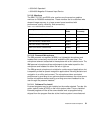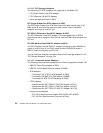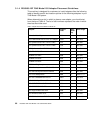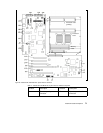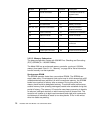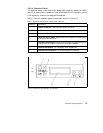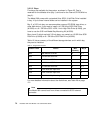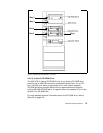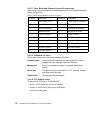Detailed Product Descriptions 69
performance, position the Model 260 as a single-seat MCAD design and
analysis solution.
In addition, the Model 260’s SMP capability and robust set of disk drive and
communications features make it an excellent entry technical and commercial
server. It is the lowest cost 64-bit SMP server in the RS/6000 family of
products. The AIX Version 4.2.1 or 4.3.2 operating system is included with
each system and can be pre-installed, if desired.
The Model 260 is designed for use as a mid- to high-range graphics
workstation, or as an entry server. It supports MCAD, CAE, Geophysical, and
entry technical server customers. It is also well suited for use as an entry
SMP/64-bit server for ISVs and customers who want a cost-effective
development platform for developing and testing applications that will run on
larger RS/6000 systems. The dual processing power of the Model 260 and its
small package make it an excellent solution for Internet service providers and
customers that need or want a stand-alone internet server.
The system is designed for customer setup of the machine and for
subsequent addition of most features (adapters/devices).
3.2.1 Model 260 System Architecture
The RS/6000 43P 7043 Model 260 is the first product of the RS/6000 family
based on the POWER3 architecture. The design incorporates high-speed
processor and memory buses, a more efficient 4 MB Level 2 (L2) cache
design, a high-performance memory-I/O controller, and fast Synchronous
Dynamic Random Access Memory (SDRAM).
For more information about the POWER3 Architecture refer to 2.4.1, “The
POWER3 Microprocessor” on page 35.
3.2.2 Standard Features
In this section, the standard features of the Model 260 and their most
important characteristics are described.
3.2.2.1 Processor Subsystem
The PCI-based RS/6000 43P 7043 Model 260 features the POWER3 64-bit
microprocessor at 200 MHz. The processor includes an L1 cache split into 32
KB instruction and a 64 KB data cache. Each processor has 4 MB of Level 2
(L2) cache. Systems with only one processor must have installed the CPU
card in slot 1.



